AMA with Conflux and Swappi: Exploring Decentralized Identity (DID)
DIDs are revolutionizing digital identity management by providing enhanced privacy, security, and control. DMAIL gave some insights on this topic in the recent AMA on X
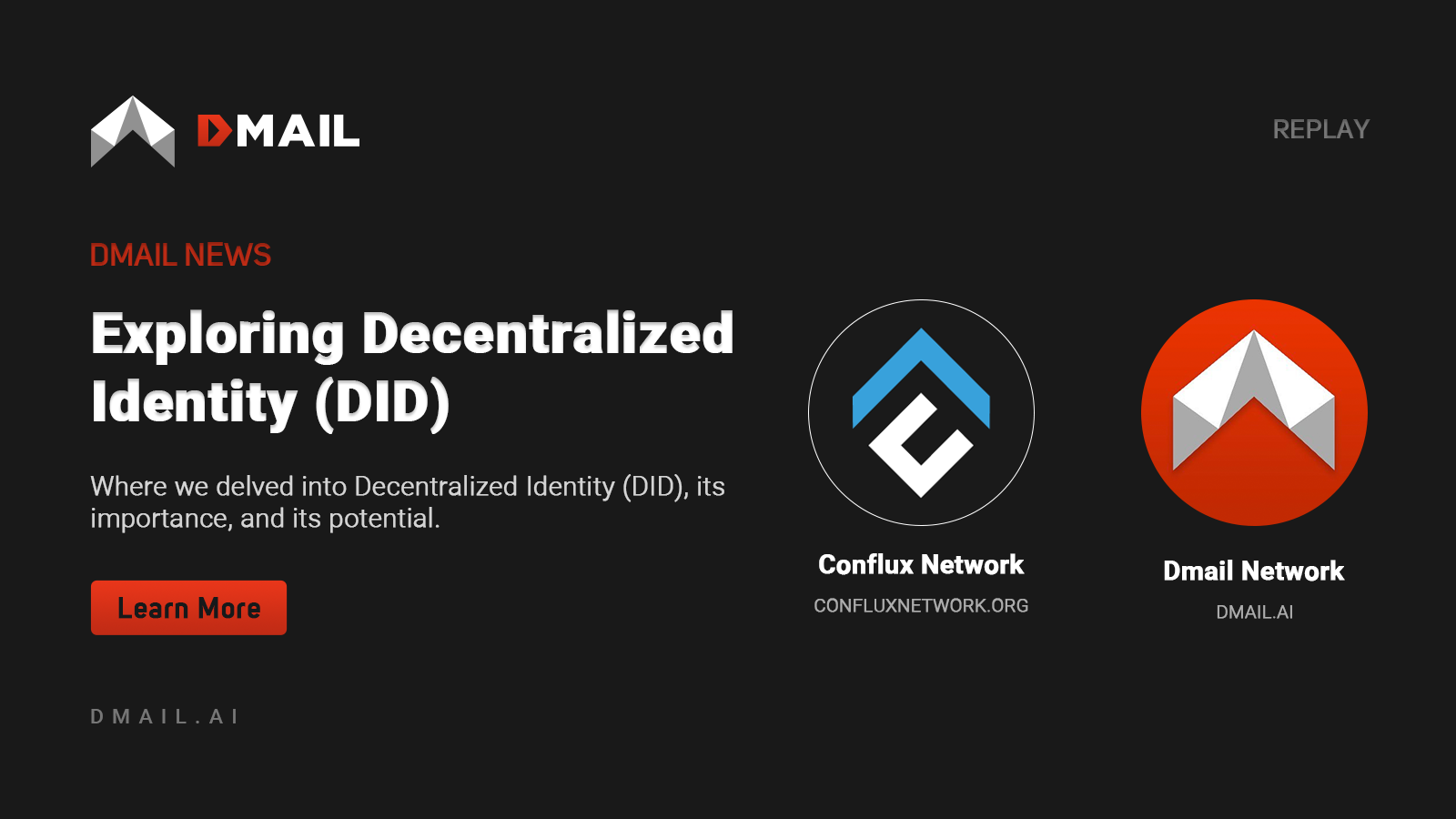
Hi everyone, it’s Daniel James, the COO at Dmail Network. I recently had an engaging AMA session with Conflux and Matt from Swappi on X, where we delved into Decentralized Identity (DID), its importance, and its potential.
Here’s a summary of our conversation, infused with my personal insights and experiences.
1. What is a Decentralized Identity (DID)?
A Decentralized Identity, or DID, allows you to manage your digital identity independently, without relying on centralized authorities like governments or large corporations. Think of it as your unique digital ID created and managed on the blockchain. It lets you prove who you are and interact online securely and privately, sharing only the information you choose. This is especially important in the Web3 landscape, where privacy and security are key.
2. How are DIDs Different from Conventional IDs?
DIDs differ from traditional IDs in several ways. Firstly, they are decentralized, meaning you create and manage them yourself without any central authority. This gives you full control over your data. Privacy is another significant difference. With DIDs, you only share the information you want to, protecting your personal data. Additionally, DIDs can be used across multiple platforms, making online interactions simpler and more efficient.
I’ve had my share of frustrating experiences with traditional IDs while living in South Korea. For example, when I was a professor, I constantly had to prove my identity through cumbersome bureaucratic processes. This made me realize how important privacy and control over one’s own data really are. That’s why I’m so passionate about the potential of DIDs in order to simplify processes.
3. How are DIDs Generated and Managed Securely on a Blockchain?
Creating and managing DIDs on a blockchain involves some sophisticated technology. When you create a DID, you generate a pair of cryptographic keys: a public key and a private key. The public key acts as your public identifier, while the private key is kept secret and used to sign transactions and verify your identity. This data is stored in a DID document on the blockchain, ensuring it’s immutable and secure. This setup ensures that your identity data remains private and tamper-proof, offering a level of security that centralized systems just can’t match.
4. Examples of Use Cases for DIDs
There are several exciting use cases for DIDs, both current and in development:
- SocialFi Platforms: Users can monetize their social influence while maintaining control over their identity and data. This is particularly beneficial for content creators and influencers.
- Healthcare: DIDs can securely store and manage patient records, enabling personalized healthcare recommendations and improving patient outcomes.
- Finance: In the financial sector, DIDs can streamline Know Your Customer (KYC) processes and help detect fraud.
- Voting and Online Communities: DIDs help prevent fake accounts and ensure the integrity of online voting and community interactions by verifying that each identity is unique and legitimate.
5. Can/Should AI Be Used in DID Applications?
Absolutely, AI can significantly enhance DID applications. It can improve security by monitoring and detecting unusual activities, adding an extra layer of protection. AI can also personalize user experiences by analyzing DID data to offer tailored services and recommendations. Moreover, AI can streamline verification processes, making them faster and more efficient, and facilitate seamless data exchange between different systems. Integrating AI with DIDs creates a more robust and user-friendly system.
At Dmail, we will use AI to ensure our DID system is as efficient and secure as possible. For instance, will AI help us detect fraudulent activities early on, providing our users with an extra layer of security.
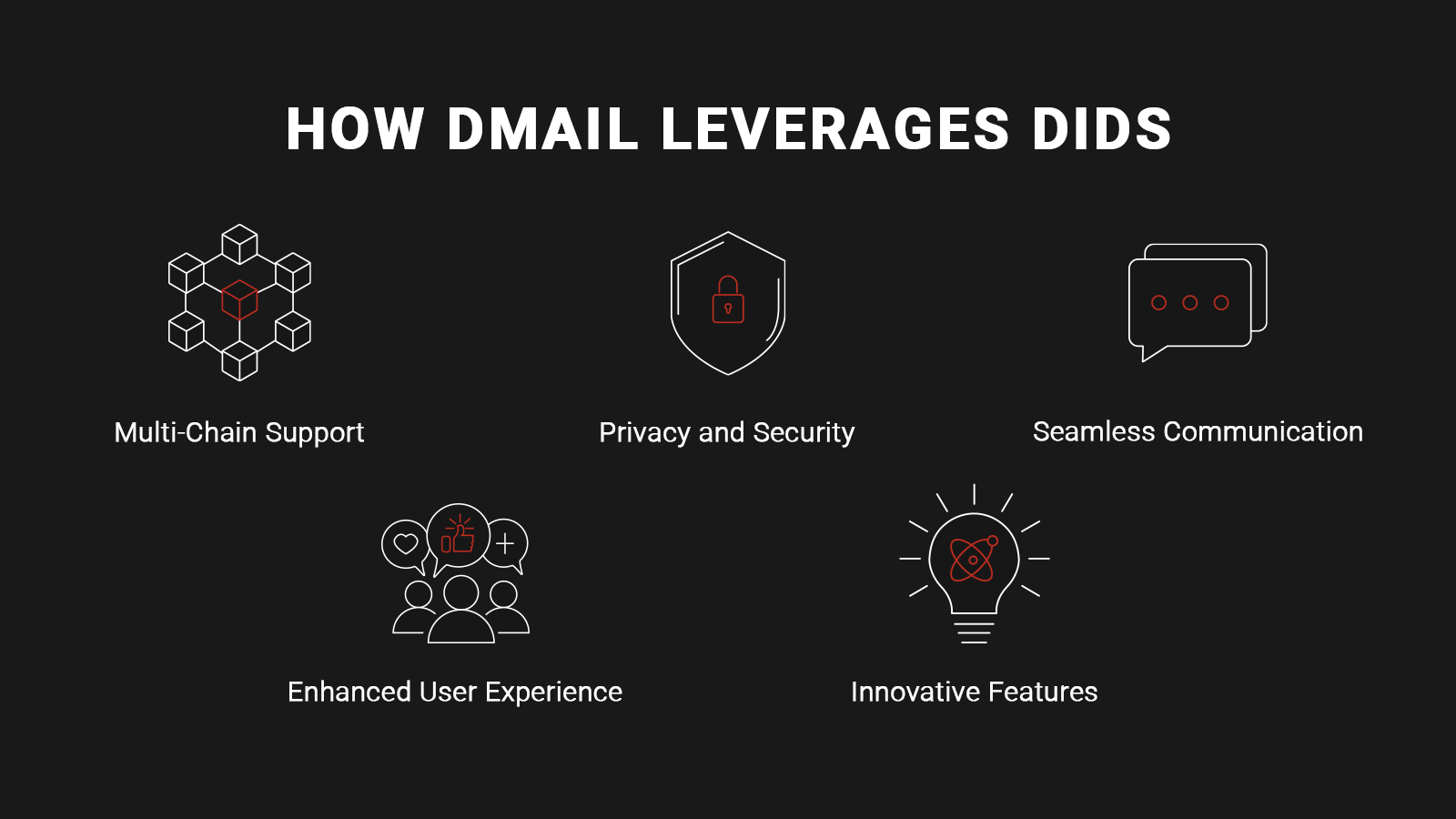
How DMail Leverages DIDs
At DMail Network, we leverage DIDs extensively to provide a secure and seamless experience for our users:
- Multi-Chain Support: We support a variety of DIDs across multiple chains including Ethereum (.eth/.bit), BNB Chain (.bab/.bnb/.cassava), PlatON Chain (.key), Polygon Chain (.888/.nft/.crypto/.dao/.lens/.wallet/.polygon/.zil/.blockchain/.bitcoin/.x/.metaverse/.token/.satoshi/.lambo), zkSync (.zk), IoTeX (.io), Conflux eSpace (.cfx), and Solana (.sol). This extensive support ensures flexibility and broad interoperability for our users.
- Privacy and Security: By integrating DIDs into our platform, users have full control over their identities. They manage their data, decide what to share, and with whom, ensuring personal information remains secure.
- Seamless Communication: Our platform acts as an aggregator of multi-chain domain name services, resolving domain names across major public chains. This enables seamless cross-chain communication, crucial for a SocialFi dApp where interactions and transactions across different platforms need to be smooth and efficient.
- Enhanced User Experience: We use AI to enhance user experience by offering personalized services and recommendations. AI-driven verification processes reduce the time and effort required for identity verification, improving user satisfaction and engagement.
- Innovative Features: DMail offers unique features like NFT Email Domain Names and asset transfer through emails. Users can mint their email addresses as NFTs, making them unique and tradeable assets. Additionally, the ability to transfer on-chain assets via email adds convenience and functionality that traditional email services lack.
In a SocialFi context, offering DIDs is crucial as it empowers users to monetize their social influence while maintaining control over their data. It enables content creators and influencers to engage with their audiences securely and privately, fostering a trust-based environment and more meaningful interactions.
Many users have provided feedback telling us how they felt more secure and in control using Dmail compared to traditional email services. This kind of endorsement is what drives us to continue innovating and improving our platform.
Conclusion
DIDs are revolutionizing digital identity management by providing enhanced privacy, security, and control. When combined with AI, the potential of DIDs is even greater, creating a robust infrastructure for various Web3 applications. At DMail Network, we’re excited to be at the forefront of this transformation, leveraging these technologies to offer cutting-edge solutions in decentralized identity management.

Connect with Dmail: Website | Twitter | Discord | Github | Telegram


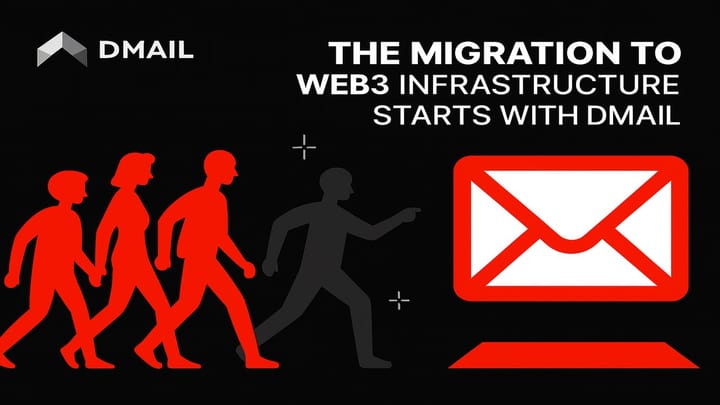
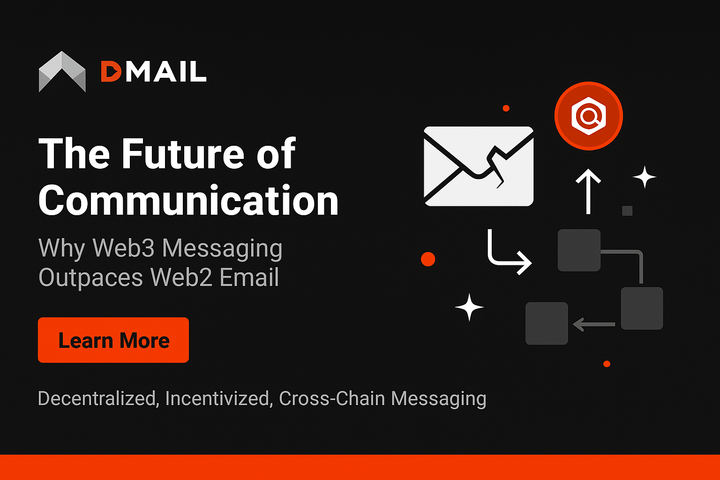
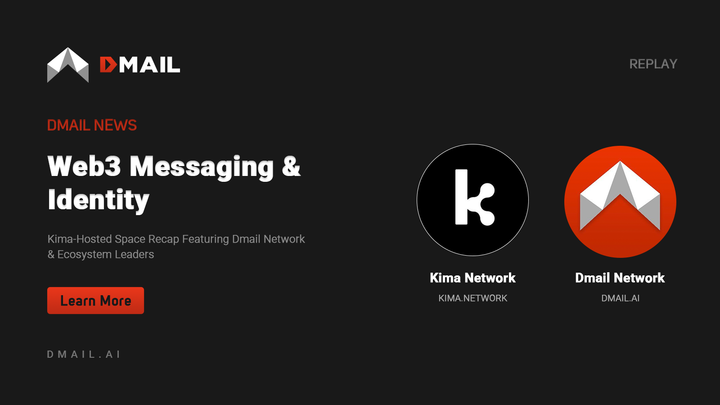
Comments ()